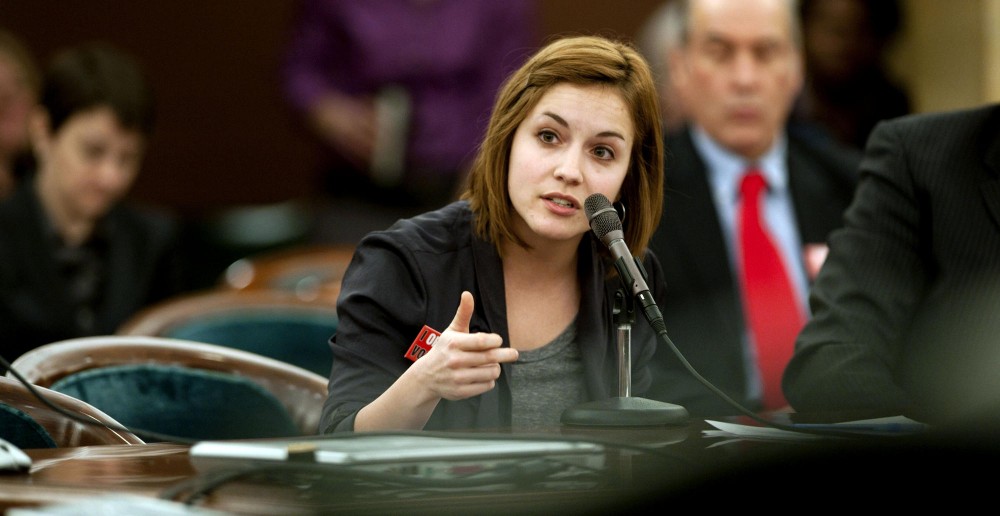The controversial voter ID amendment went through its first test at the state Capitol on Wednesday.
The Minnesota State Senate Local Government and Elections Committee listened to hours of public testimony before deciding to table the amendment for further discussion.
Thirty-one people registered to testify during the hearing that lasted more than five hours with additional walk-in speakers. Testifiers and observers packed the Senate hearing room, and about 50 additional observers filed into an overflow room to watch on closed-circuit television.
An overwhelming majority, including University of Minnesota student Sydney Jordan, testified against the proposed constitutional amendment that would require Minnesotans to show photo identification when they vote. Jordan, an Illinois native and member of the Minnesota Public Interest Research Group, testified that the amendment would disenfranchise student voters.
âÄúSuch an amendment would deter many students from voting, including myself, as many of us do not possess IDs with our current address.âÄù
Only a handful testified in favor of it.
Members of advocacy groups from both sides of the issue went to the Capitol to voice their opinion.
âÄúBasically, itâÄôs going to make it harder for students to vote,âÄù said Joey Dobson, a campus organizer for MPIRG.
Dobson and MPIRG oppose the proposed constitutional amendment. She said they would continue to fight it even if itâÄôs put on the ballot.
Republican legislators proposed a bill in the 2011 legislative session, but it was vetoed by Gov. Mark Dayton because he said it lacked bipartisan support.
Dan McGrath, the executive director of Minnesota Majority, said his organization found record numbers of voter fraud. A 2011 Minnesota Majority study found that there were 113 convictions for voter fraud in 2008, mainly resulting from people voting despite being ineligible to do so.
McGrath said election fraud was a significant problem inMinnesota elections and said his group was responsible for finding fraud, not the âÄúcracker jack election workers.âÄù
âÄúWe need improvement in the process in, I think, a very major way,âÄù McGrath said.
McGrath said the testimonies claiming that the proposed amendment would disenfranchise voters were âÄúridiculous.âÄù
A November 2010 report from Citizens for Election Integrity Minnesota found only seven cases of voter impersonation investigations since 2008. The report concluded that voter ID legislation is unnecessary.








